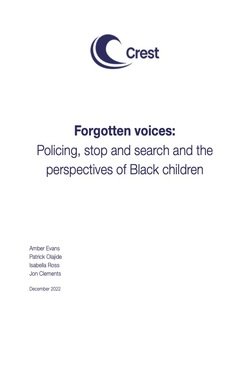By Nazgol Ghandnoosh and Celeste Barry
As noted in the first installment of this One in Five series, scholars have declared a “generational shift” in the lifetime likelihood of imprisonment for Black men, from a staggering one in three for those born in 1981 to a still troubling one in five for Black men born in 2001. “I can’t breathe,” George Floyd said over 20 times. “Every time you see me, you want to mess with me,” said Eric Garner. “I just want to go home,” said Tyre Nichols. Breonna Taylor asked who had come into her apartment in the middle of the night. Police killed them all. The Black Lives Matter movement has rightly highlighted the tragic deaths resulting from policing’s biased and excessive contact with people of color. Nearly half of those killed by police in recent years have been Black or Latinx, and officers are rarely held accountable. This report interrogates the large footprint of policing—particularly of Black Americans— as, in part, a failed response to racial disparities in serious crimes. The wide net that police cast across people of color is at odds with advancing safety because excessive police contact often fails to intercept serious criminal activity and diminishes the perceived legitimacy of law enforcement. Excessive policing also distracts policymakers from making investments to promote community safety without the harms of policing and incarceration. In addition, the large footprint of policing gets in the way of, as the National Academies of Sciences has called for, needed “durable investments in disadvantaged urban neighborhoods that match the persistent and longstanding nature of institutional disinvestment that such neighborhoods have endured over many years.”
Washington, DC: Sentencing Project, 2023. 27p.




